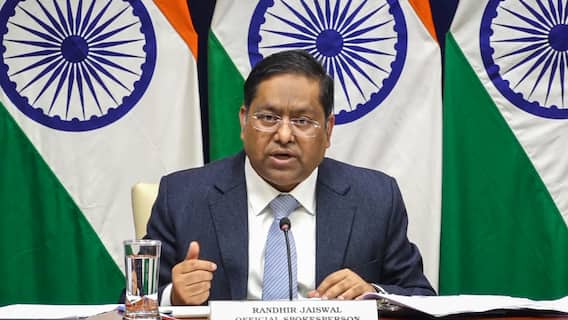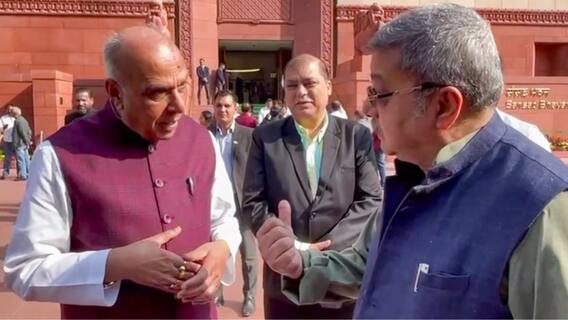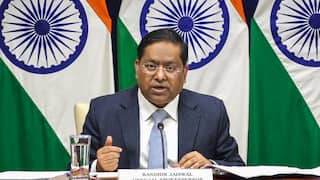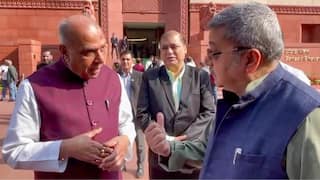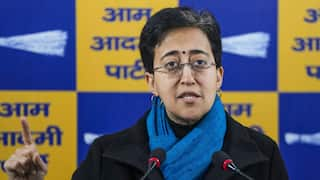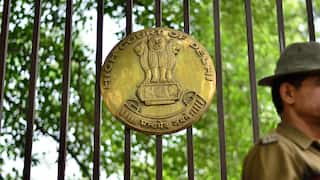Explorer
Eclipse 2018: No effects of year's longest Solar eclipse in India
With Mars closer than it has been in 15 years, almost double the brilliance of Jupiter through the naked eye, and the longest total lunar eclipse of the century, space enthusiasts can tune into the skies for a double celestial delight this month.
On the intervening night of July 27-28, the Moon will be totally eclipsed for one hour, 43 minutes. The event can be observed in a large part of the globe, including in India, where it can be seen after 11.54 pm Indian Standard Time on July 27.
According to Dr Debiprosad Duari, director, Research & Academic, MP Birla Institute of Fundamental Research, it will be the longest total lunar eclipse of the century.
Four days later, another spectacular celestial event will enthrall millions of people around the world, Duari said.
On July 31, Mars, the fourth planet from the Sun, will be 57.6 million kilometres from Earth, the closest it has been since 2003 when it came within 55.7 million kilometres, which was the nearest in almost 60,000 years.
"The Red Planet will be at its brightest since 2003, when Mars made its closest approach to Earth in almost 60,000 years since September, 24, 57617 BC," Duari told PTI.
Mars will be visible in the night sky after sunset till sunrise from everywhere in India, provided the monsoon clouds don't play spoilsport.
Explaining the celestial phenomenon, the astro physicist said the orbital period increases as the distance of a planet from the Sun increases. That is why Earth takes a little more than 365 days to go round the Sun and Mars takes 687 days.
On the intervening night of July 27-28, the Moon will be totally eclipsed for one hour, 43 minutes. The event can be observed in a large part of the globe, including in India, where it can be seen after 11.54 pm Indian Standard Time on July 27.
According to Dr Debiprosad Duari, director, Research & Academic, MP Birla Institute of Fundamental Research, it will be the longest total lunar eclipse of the century.
Four days later, another spectacular celestial event will enthrall millions of people around the world, Duari said.
On July 31, Mars, the fourth planet from the Sun, will be 57.6 million kilometres from Earth, the closest it has been since 2003 when it came within 55.7 million kilometres, which was the nearest in almost 60,000 years.
"The Red Planet will be at its brightest since 2003, when Mars made its closest approach to Earth in almost 60,000 years since September, 24, 57617 BC," Duari told PTI.
Mars will be visible in the night sky after sunset till sunrise from everywhere in India, provided the monsoon clouds don't play spoilsport.
Explaining the celestial phenomenon, the astro physicist said the orbital period increases as the distance of a planet from the Sun increases. That is why Earth takes a little more than 365 days to go round the Sun and Mars takes 687 days.
India

UP Politics: Yogi Takes On The Yamuna Dip Challenge! The 'Ganga-Yamuna' Political Tug-of-War Intensifies From Delhi To UP | ABP News

Delhi Election: Rahul’s Strategic Withdrawal From Delhi's Dangal Sparks Speculation, Rallies Canceled Amid Growing Political Tensions | ABP News

Delhi Election 2025: Punjab Police Removes Security From Arvind Kejriwal After Election Commission's Order, Raising Concerns Over Safety | ABP News

Delhi Elections 2025: The Battle For Bijwasan Heats Up As Voices From The Ground Reveal Who Might Dominate The Seat | ABP News

Mokama Gang War: Intense Drama Unfolds As Bullets Paint The Land Red, Turning Mokama Into A Battleground Of Chaos | ABP News
View More
Advertisement
Advertisement
Advertisement
Top Headlines
India
India
India
Election 2025
Advertisement
Trending News


Nayanima Basu
Opinion





























